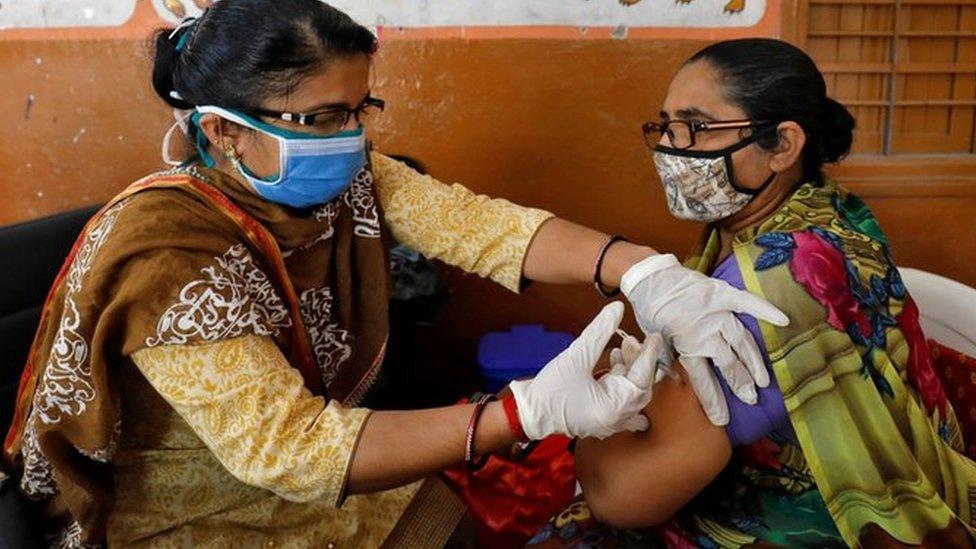Covid: Germany to halt travel from Czech Republic and Tyrol
- Published
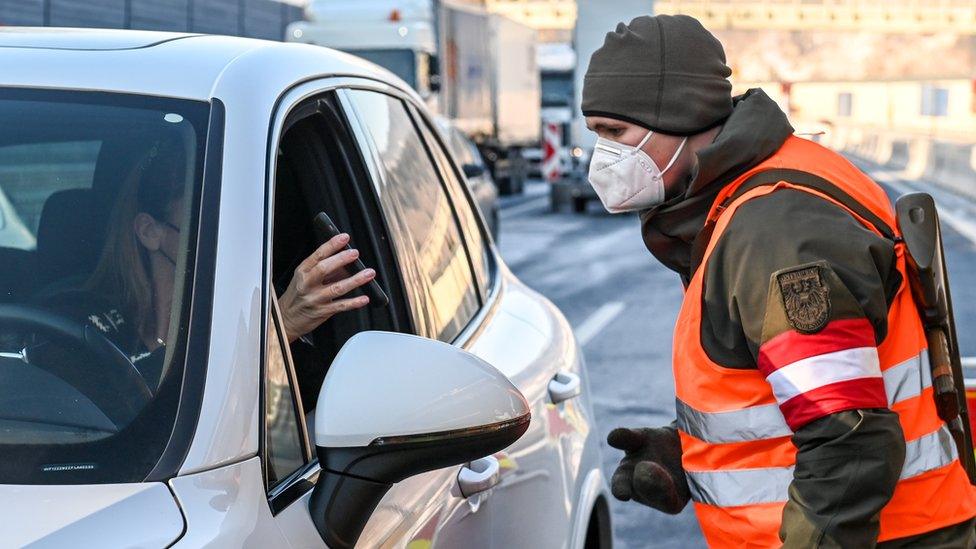
Queues built up at this Tyrol border crossing with Germany on Friday as Austria's own movement restrictions came into effect
Germany is to ban travel across some of its borders, after the interior ministry said Austria's Tyrol region and the Czech Republic were now classed as coronavirus "mutation areas".
Austrian police and soldiers were deployed in Tyrol on Friday to restrict travel outside the region.
The Czech Republic has also banned movement in and out of three regions.
In a blow to the government, Czech MPs refused to extend a state of emergency, even though infections have not fallen.
What the German ban means
The German border restrictions with Tyrol and the Czech Republic will come into force on Sunday. "They are unavoidable for a certain period of time to prevent the spread of dangerous virus variants," Health Minister Jens Spahn announced. A travel ban will also come into effect with Slovakia.
Interior Minister Horst Seehofer said the German government had been asked to impose temporary restrictions by the states of Saxony in the east and Bavaria in the south-west. Checkpoints will be put in place and trade links will be allowed to continue. Further exemptions will be announced later, which are seen as vital for commuters.
Germany imposed border controls for three months at the start of the pandemic in an attempt to halt the spread, but it affected cross-border workers and families as well as trade.
Covid-19 and Wuhan: Why don't we know more?
The infection rate has come down in Germany in recent weeks and the head of the RKI public health institute, Lothar Wieler, said on Friday that the "corona measures are working", adding that they had also helped prevent the usual wave of winter flu.
A national lockdown has been extended until 7 March, but schools in some states will reopen this month and hairdressers can start work again on 1 March.
Across the Austrian border in Tyrol, health officials are facing an outbreak of almost 300 cases of the South African variant that Chancellor Sebastian Kurz has described as "the biggest currently known of in the European Union".

What's happening in Tyrol?

Police and soldiers are out in force on Tyrol's domestic and foreign borders, checking people leaving the province for negative coronavirus test results.
Checks are taking place on motorways and smaller roads, as well as on trains and at Innsbruck Airport. Anyone leaving the province, including commuters, are required to show a test that is no older than 48 hours.
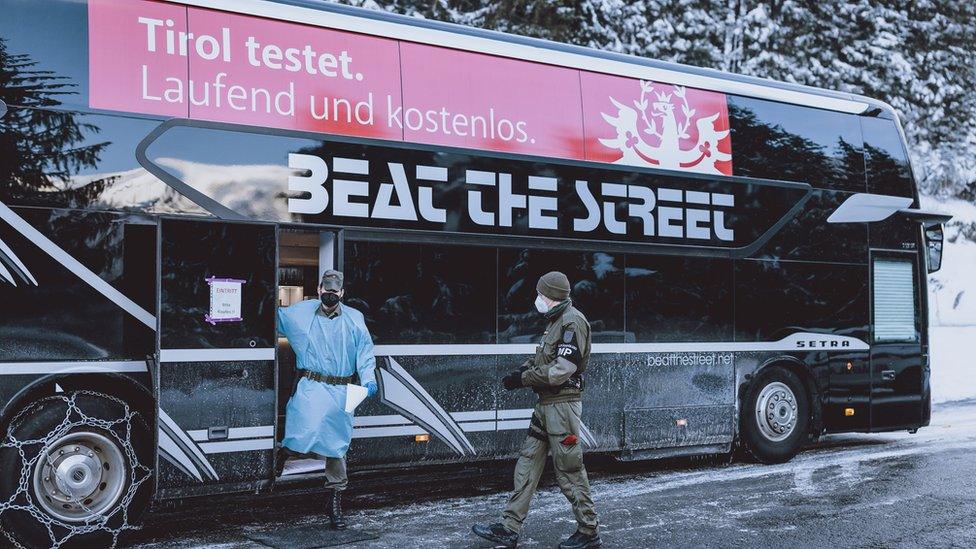
Free testing was being offered on Friday at this mountain pass in Tyrol
There are exceptions for children, members of the emergency services and people transiting the province without stopping.
The measures do not apply to East Tyrol, which is geographically separate from the rest of the province. The Austrian government has opted against placing the whole of Tyrol under quarantine, a decision that has been criticised by opposition politicians and virologists.

What's the situation in the Czech Republic?
Czech health authorities reported another 8,916 cases on Friday, after parliament rejected a government move to extend the state of emergency, which ends at midnight on Sunday.
The government's ban on movement affects three areas where infections are especially high: Cheb and Sokolov along the German border as well as the Trutnov district on the Polish border. What is not clear is what will happen to the restrictions on Monday, when the state of emergency ends.
The night-time curfew and limits on the freedom of movement and gatherings will end automatically, BBC Prague correspondent Rob Cameron reports.
Ski-lift operators have already said they will fully open from Monday and most shops are likely to open too, but schools, pubs and restaurants are set to remain shut under public health legislation, our correspondent adds.


Related topics
- Published10 February 2021
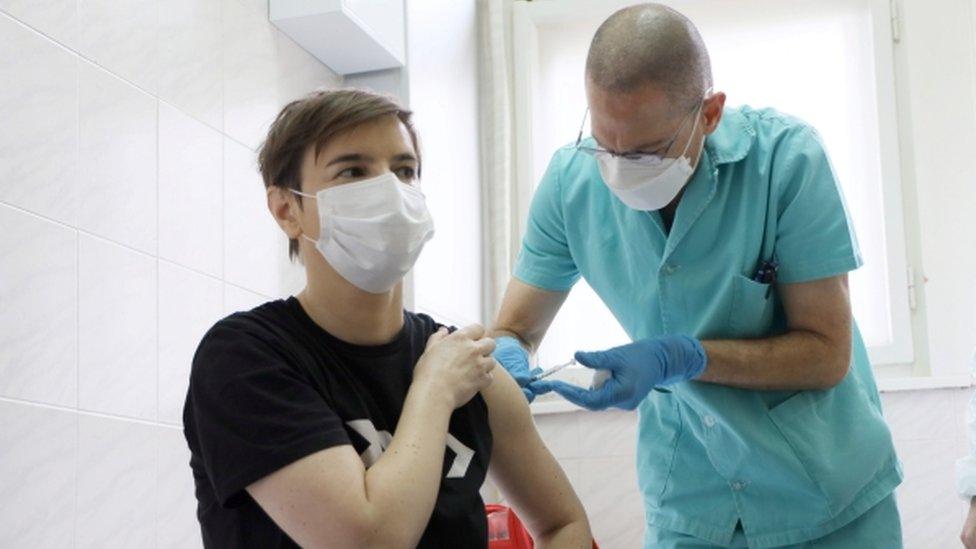
- Published5 February 2021
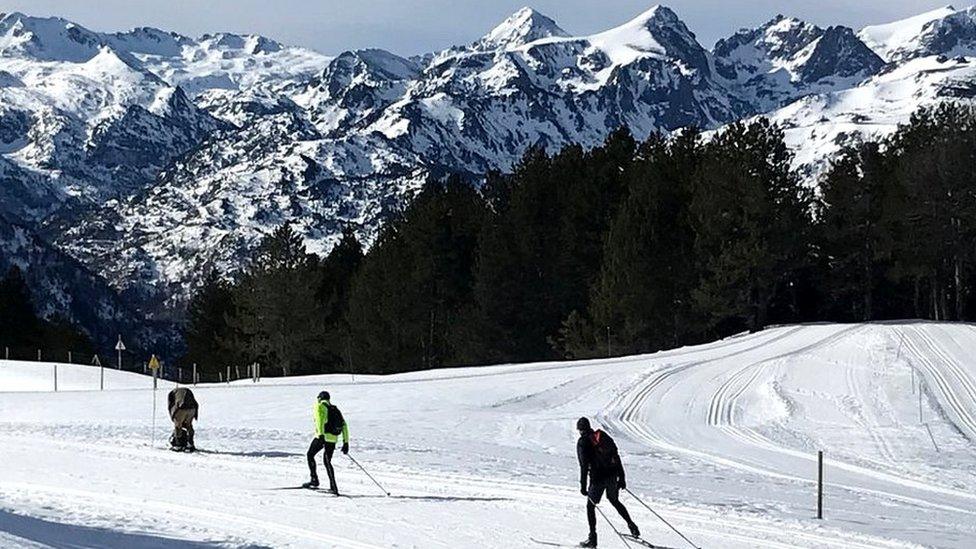
- Published5 July 2022

- Published12 February 2021
